Sustainable Residence
 |
| Sustainable Residence |
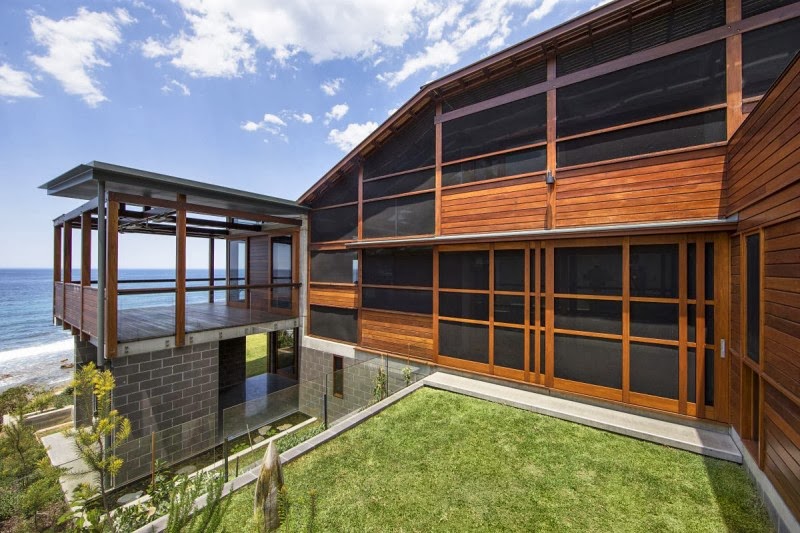 |
| Sustainable Architecture Australia |
"The house
grew out of its formidable site, inspired by the Illawarra Escarpment to the
far west and north, and to its east the tidal ocean rock shelf and ocean
beyond. Our aim was to create a ‘safe harbour’ for living; to borrow and imbed
the ocean-scape within the house views and to make a home of beauty and
craftsmanship.
The clients
have a love for boats, concrete and all things Japanese. Their new house reads
from the street as a timber house, massed as a series of boxes in reference to
the coastal shacks that previously stood in the street. The ‘mass’ speaks to
adjoining neighbours in height & scale. On the interior a concrete house is
revealed.
The client’s
program called for a house for two people, to accommodate regular visits from
grown children, grand children & elderly parents. A house, with the
enjoyment of ‘making and eating food’ at its centre. A house, that would
creatively display the client’s art and pottery collection. A house, that environmentally
responded to its location.
The House
divides into three staggered floor levels relating to the landform it sits
upon, the height restrictions that protect neighbour’s views behind and its own
internal views out to the ocean. The largest floor level is the ‘public’ ground
floor space with cooking, eating, lounge space, guest bathroom and bedroom.
There is the ‘private’ first floor mezzanine with main bedroom, bathing and
study perch, that overlooks the main living space below. The level that links
the house with the ocean, is the lower ground floor, with an additional guest
room that doubles as a Pilates space, and a covered pottery work terrace that
opens to a western terraced vegetable garden and pond, and to the eastern
coastal garden and ocean.
Arrival into
the house, is through the northern breezeway that links all levels of the house
externally. A mosquito screened ‘lung’ of the house, it allows the inner core
to open up, extending areas and views. Its recycled ‘post and beam’ Spotted gum
hardwood structure, is a counterpoint to the concrete ‘post and beam’ inner
structure. This system allows great flexibility between inside and outside and
between internal spaces.
The house
site has its long section facing north, stimulating an architectural response
of ‘partnered’ indoor-outdoor rooms. At main ground floor level, the kitchen
opens to a sheltered central courtyard, which then connects to a terraced
vegetable herb garden facing north east, protected from southerly winds. The
lounge area, four steps above the ground floor level, opens to its north, into
a large roofed porch that can house 20 people around a family table. This porch
has a northern coastal view of disappearing headlands and a panoramic ocean
horizon view to the east, and looking downwards a spectacular detailed view of
the rock platform below.
In this house
the landscape, environmental, structural and lighting disciplines were
critically linked. A work of architecture must integrate disciplines to create
a crafted whole.
SUSTAINABILITY
The Coalciff
house was designed to meet a sustainable outcome. It is thermally appropriate,
well sealed from Southerly winds, able to recycle its collected rainwater, and
to generate a base module of electricity. The clients’ commitment to sustainability
included the installation of 6KW photovoltaic cells, equivalent to a third of
the clients usage. The electricity generated is circulated into the grid. Solar
heating with gas boosting provides for the hot water supply. Glazing is a
mixture of double glazed and Low E glazing solutions. Rainwater is collected
and stored at basement level in a 7500lt tank, and recycled to serve all toilet
cisterns and garden irrigation.
The house is
a post and beam structure of concrete internally and externally of recycled
hardwood. Its southern elevation is of concrete block, with cavity and internal
concrete wall panels. Its west and northern elevations are reverse block
veneer.
Concrete
internal walls allow for additional thermal mass and create the neutral
background for display of the client’s art collection. The external recycled
Spotted gum cladding creates a link to the coastal house detailing of the past
and present.
The
structural floors are 40mpa concrete and work as a thermal mass absorbing
eastern and northern sunshine that penetrates the interior. The ‘lung’ of the
house, which also links externally the levels of the house, is a northern
breezeway screen structure, allowing cross ventilation through a screened
façade. Additional cross ventilation occurs east and west with high level
louvres, circulating the warm air at ceiling level.
The
architectural language of an exposed structural system with a restrained
palette of materials has created a more singular approach to materials and a
limited radius of sourcing. Concrete and concrete blocks were sourced locally.
Recycled timber has been delivered from the north coast while all joinery was
made locally."
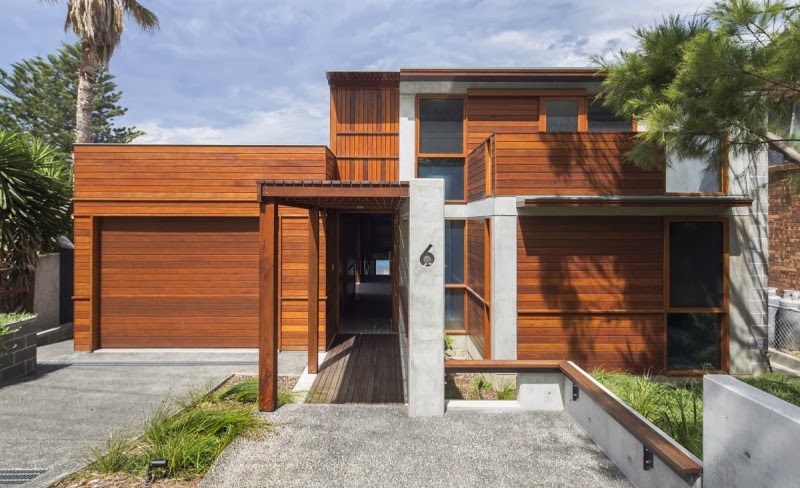 |
| Sustainable Contemporary House Design |
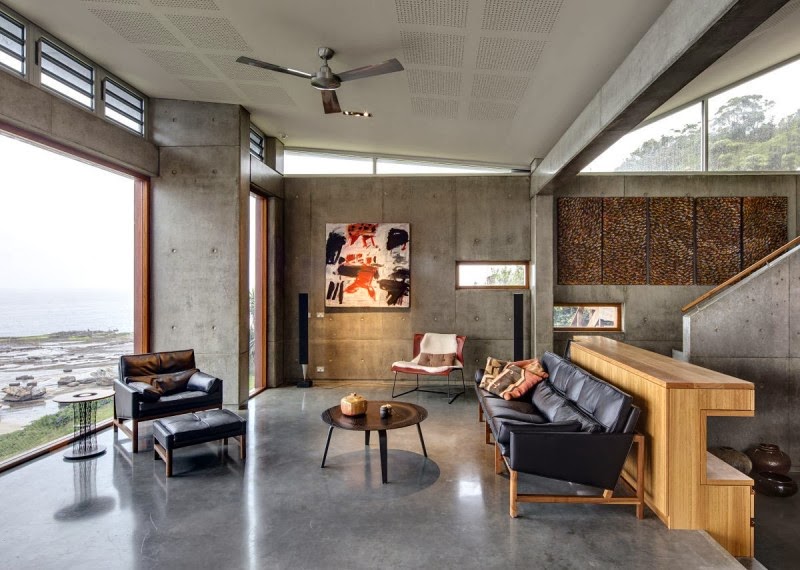 |
| South Coast Interior and Furniture |
 |
| South Coast Interior Design |
 |
| South Coast Living Room |
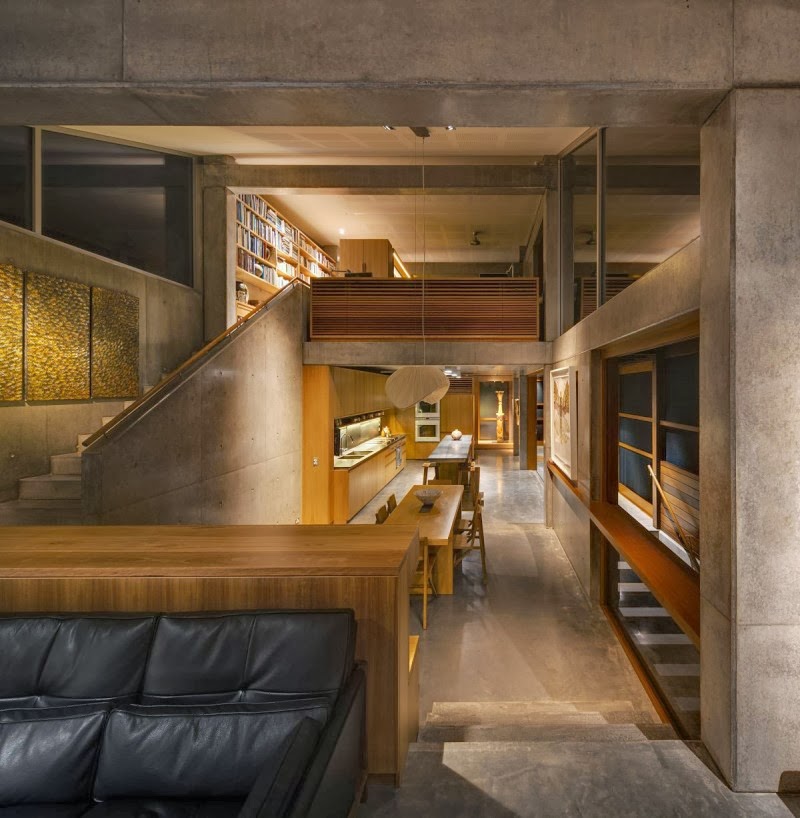 |
| South Coast Dining Room Ideas |
 |
| South Coast Comfy Bed Room Ideas |
 |
| White Bathtub Design |
 |
| Cozy Dining Room Family |
 |
| Bathroom Interior |
 |
| South Coast Passive Lighting |
 |
| South Coast Peaceful View |
 |
| Wooden Ballistic Stair Handle Ideas |
Photos by: Murray FredericksPhotography
Keywords: sustainable residence, modern house styles australia, modern landscape design, modern sustainable house, sustainable architecture australia, contemporary house australia








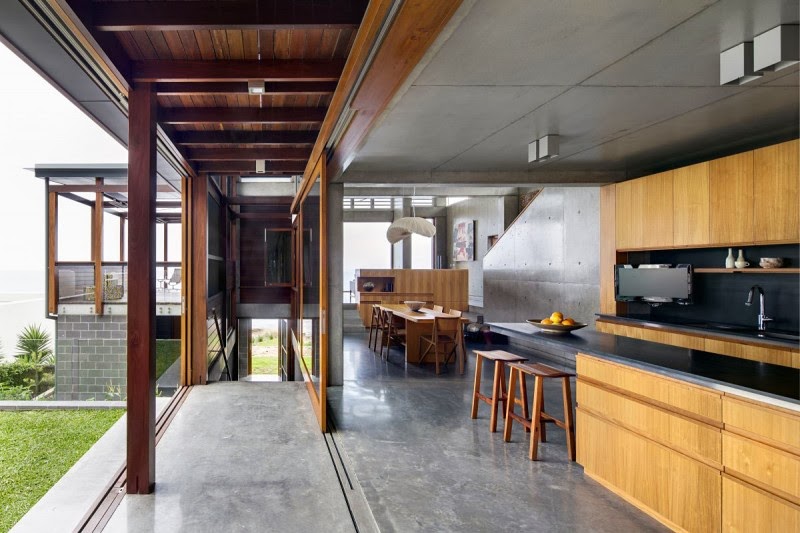









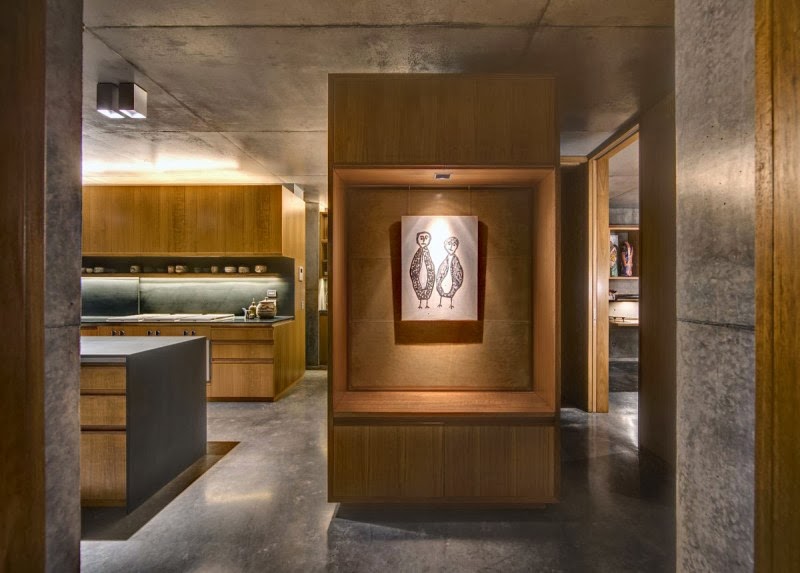
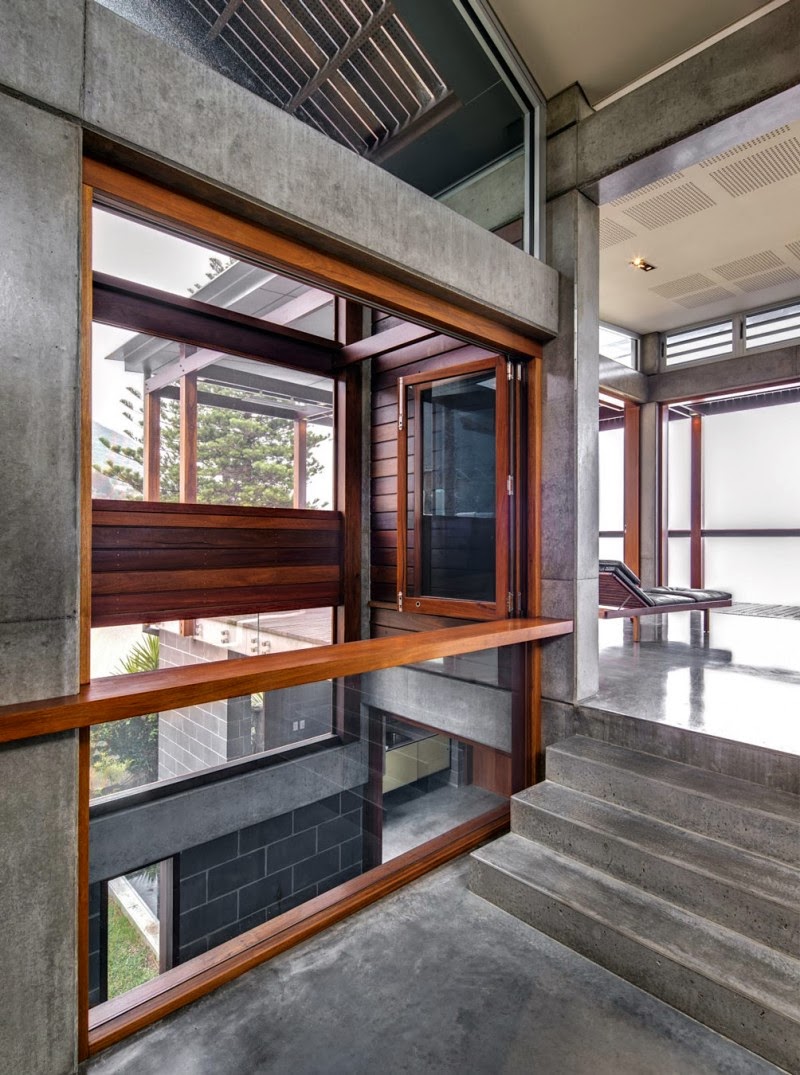


.jpg)



.jpg)



